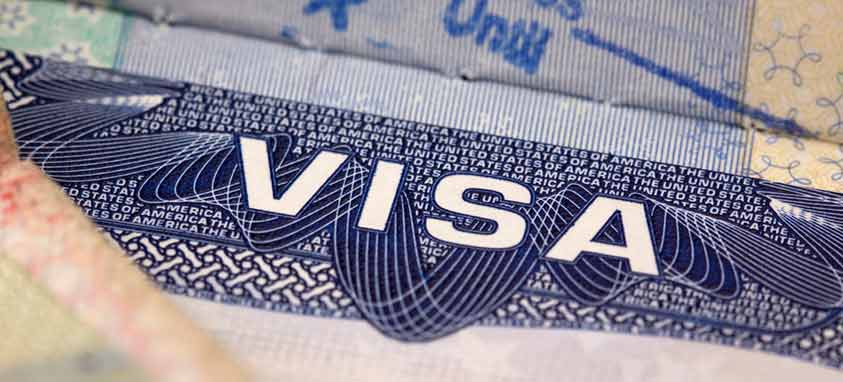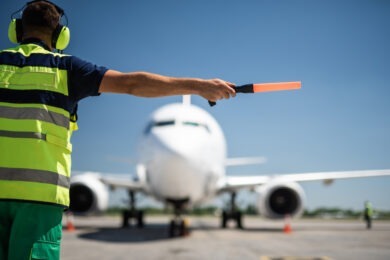On Dec. 1, U.S. Senators Dianne Feinstein (D-Calif.) and Jeff Flake (R-Ariz.) introduced the Visa Waiver Program Security Enhancement Act. This legislation is designed to strengthen the security of the Visa Waiver Program (VWP) and help prevent terrorists from entering the United States.
The bill is cosponsored by U.S. Sens. Ron Johnson (R-Wis.), Martin Heinrich (D-N.M.), Dan Coats (R-Ind.), Heidi Heitkamp (D-N.D.), Kelly Ayotte (R-N.H.), Michael Bennet (D-Colo.), Angus King (I-Maine), Mark Warner (D-Va.), Tammy Baldwin (D-Wis.), Jon Tester (D-Mont.) and Amy Klobuchar (D-Minn.).
Provisions of the bipartisan bill would require those who have travelled to Syria or Iraq in the past five years to acquire a traditional tourist visa (which costs $160, as opposed to the VWP fee, which is currently $14), undergo a personal interview with a U.S. consular official, and submit biometric information in the form of fingerprints and a photograph. All VWP travelers would be required to submit biometric information and use electronic passports, which are more difficult to tamper with. The bill would also mandate increased intelligence-sharing between VWP countries and the United States.
Concerns About the Proposed Bill
The Washington, DC-based U.S. Travel Association, a national, nonprofit representing the travel industry, strongly supports the Visa Waiver Program, but has some concerns about the pending legislation.
“The U.S. travel community strongly supports sensible security enhancements to the Visa Waiver Program. What we cannot support are steps that ultimately dismantle the program and set back America’s economy and our efforts to protect the homeland,” it said in a statement.
The organization is particularly concerned with the biometrics provision of the Feinstein-Flake bill. It questions where biometrics collection will be conducted, and how it will be funded. “The bill could theoretically necessitate the costly installation of systems at hundreds of overseas airports. What kind of burden would this impose upon our partners in the VWP—by definition, America’s strongest security allies?” the organization asks.
The U.S. Travel Association also worries that an increased fee for foreigners to visit America could have a negative economic impact. The organization estimates that in 2014, more than 20.3 million travelers arrived through the VWP, generating $190 billion in economic output and supporting nearly one million jobs.
“If the Feinstein-Flake bill imposes redundant, costly, inefficient protocols, it could ultimately do more harm than good,” it warns.
U.S. Travel Association President and CEO Roger Dow is quick to emphasize the importance of the Visa Waiver Program. “Travel cannot thrive without security, and even the most successful programs should be continually evaluated and updated to reflect the ever-evolving security landscape,” he says. “We have long been on-record supporting the VWP bill, and we anticipate that other measures will arise in both the House and the Senate that we can support.”
Yet U.S. Travel Association Executive Vice President for Public Affairs Jonathan Grella expresses caution about a complete overhaul of the program. “VWP is a rare, exemplary government program that delivers both security and economic benefits. It makes the world safer through secure travel partnerships between allied countries, with rigorous additional standards for passport security, intelligence sharing and inspection of each other’s screening protocols. We urge Congress to thoroughly review the security and facilitation aspects of the program, as well as the effectiveness of new requirements, before rushing to legislate,” he said in a statement.
The Current Visa Waiver Program
The Visa Waiver Program was designed to facilitate international travel and trade, while protecting the homeland. It does this through individualized pre-screening of travelers, enhanced international partnerships with law enforcement and intelligence services, and more secure passports for participating countries.
The program permits citizens from designated countries to travel to the United States for business or leisure trips for up to 90 days without first obtaining a “tourist” (B-1/B-2) visa from a U.S. Embassy or Consulate.
There are 38 countries currently participating in the program. VWP countries share information about known or suspected terrorists, maintain high standards for transportation security, border control and document integrity, and track all lost and stolen passports.




